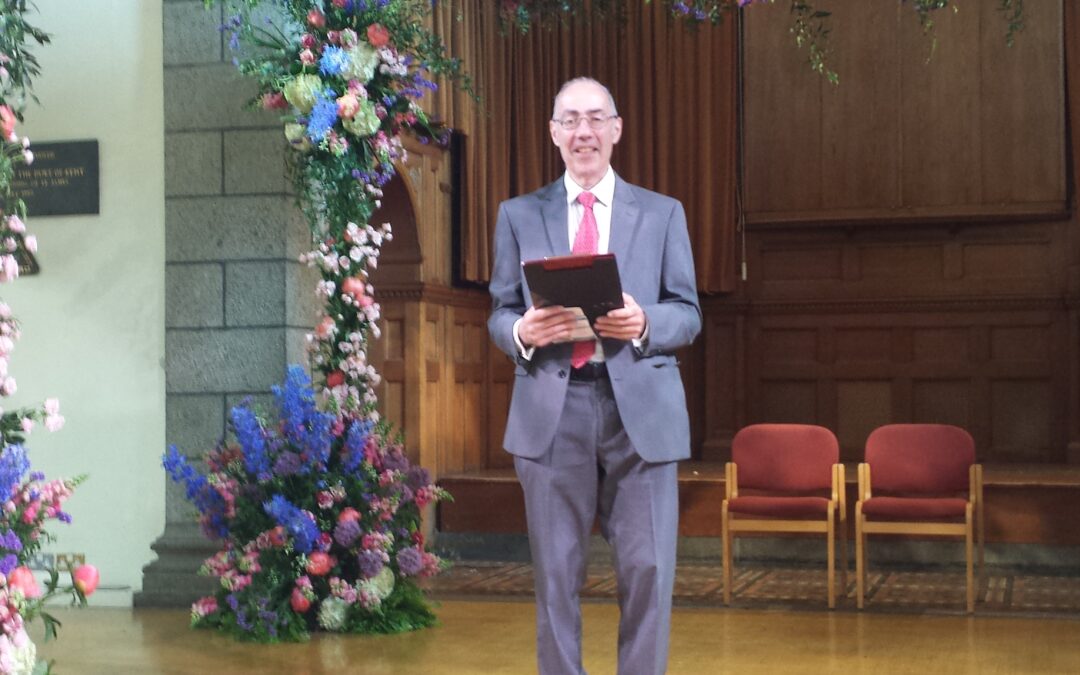
by Michael | Apr 20, 2021 | Blog
I’m often asked what is my role. How can I conduct a wedding? Surely, that’s got to be either a priest (or equivalent) or else the registrars?
What people often don’t realise is that those are not the only options.
As we’ll find out, there’s also a civil celebrant (like me!) who can do the job.
Religious
If you opt for a full religious service in England & Wales, then of course you go to your church (or equivalent). They will explain all that’s involved. Not every branch of Christianity is catered for here, though. Church of England, Quaker or Jewish are the only types of religion included.
For other sects, you can marry in a non-C of E church (say), but the marriage will not be legal until you have made an appointment and been to the Register Office. Without the registrars’ participation and the pronouncing of certain words, you will not qualify as legally wed.
Civil
If you choose the civil route, you need to know that the service must be totally non-religious. You can be sure that it will be a totally secular ceremony, even though the content may vary a bit from registrar to registrar.
The Register Office service will cost in the region of £100. Pre-COVID, they could come out to a venue licensed for weddings, albeit for another £500 or so. As I write, this is no longer possible, and, anyway, wedding numbers are still limited severely.
Celebrant
There is another option, however, which all too few people know about. It is particularly useful if:
- You may not want a full religious service
- You may want one, but are prevented from marrying in your church/synagogue etc. For example, you are a (Catholic) divorcee or yours is a mixed-faith ceremony
- You (or even your parents!) want to have just a smidgen of religion in your service
Note that, a humanist celebrant, like the registrars, will not allow any religious references. So go for an independent celebrant, and you can enjoy a personalised ceremony with as much or as little religion as you want.
Again, this is not a legal ceremony, so you still have to go to the registrars. Afterwards, you can enjoy the ceremony you actually want, compiled and conducted by your civil celebrant. It can be in the venue of your dreams, and, to all intents and purposes, be your actual wedding. It can reflect your personalities and beliefs, with inspiring spiritual – or even funny – readings, and contain personalised sections, such as self-written vows.
So don’t go thinking that your big day can’t be the way you want it! Because it can!
Have a chat with me, and I’ll show you how.
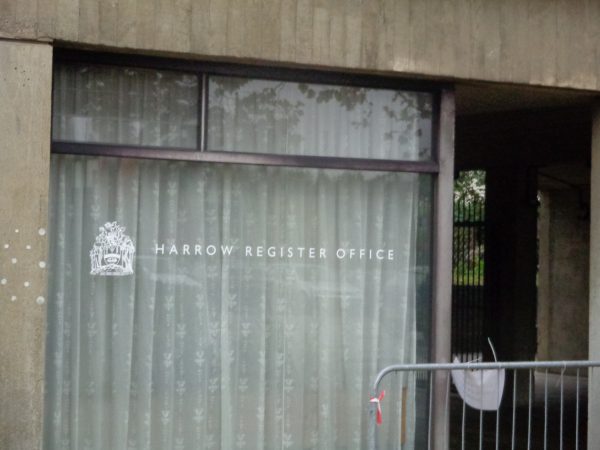
by Michael | Sep 14, 2020 | Blog
Where you marry is not something to take for granted. If atmosphere is important to you, you’re going to select your venue with care. That applies to the venue of your wedding service and to the reception venue (if they are different).
When I married my good lady back in the sands of time, we attended the local register office, which was far from attractive! Knowing that, we had booked alternative venues for the other parts of the occasion. Those choices mattered to us.
The obvious choices
If you go down the full religious route, you’ll use your religious building. It’s simple enough.
It’s almost as simple if you’re having a Register Office wedding. You make an appointment to attend the office, with two witnesses. A quarter of an hour later, it’s all over. (Incidentally, pre-COVID, Registrars would come out to some venues – though at quite a price!)
Another choice
You don’t have to be bound by those two alternatives. You can opt for the civil celebrant route, and then it’s a different ball-game.
This doesn’t negate the Registrars. You still have to get legally married first. That means making an appointment before the ceremony (as above).
The difference is that now you can also have your personalised ceremony – in the venue of your dreams.
And that means almost anywhere! It could be in your back garden or (with permission, of course) in a field next to a canal, up the Shard, at Stonehenge, by the seaside, in the Savoy Hotel, in a hot-air balloon – well, you get the picture! Do bear in mind dear old social distancing!
Advice
If you’re arranging the ceremony yourself, you’ll need a celebrant, and probably suppliers such as florists, photographers, make-up artists, caterers, etc.
You may want to hire a wedding planner. For the extra cost, you get peace of mind. Depending on the package you agree, every detail can be organised and overseen for you.
Regardless, you need to get permission/pay for the venue you may be using.
All this should be arranged well in advance – generally, at least a year ahead, as some of the suppliers get booked up quite early. Maybe even earlier in the new world we’re living in.
With all suppliers, try and get first-hand reports from people who have used them. This may be word-of-mouth or website reviews, but speaking to them directly is important. You can ask your questions and get a feel for the supplier’s attitude.
Practicalities
Remember good old health and safety – especially if you’re organising everything yourself. (No trailing wires; ensure there are sufficient toilets; check signposting, observe social distancing etc. etc.)
The bottom line is that you really can choose where (and how) to mark your big day. Of course, if you need any advice on the ceremony, just contact your friendly neighbourhood celebrant!
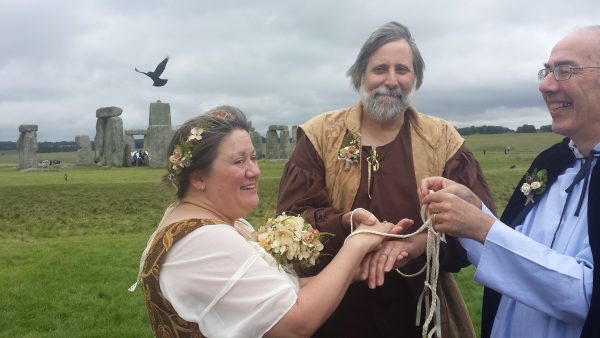
by Michael | Jun 30, 2020 | Blog
Who’d plan a major event at this time?
Off-putting as it may be – with regulations changing almost by the day and often ambiguous – people have not been deterred from arranging life-cycle events.
Although some have cancelled their wedding, most have been rearranging them.
The Latest Changes
You will probably have noted that weddings are now permissible again (obviously, subject to social distancing etc.). However, this good news is diluted by other realities.
Apparently, there is a serious shortage of registrars, so this is causing further delays. A number of people are therefore turning to civil celebrants so that they can at least have the service. They then book the legal ceremony at the register office whenever that is possible.
Another cause of delay is the venues. These have to consider risk assessments and may need to make major structural changes.
Assuming all is COVID-secure, here (based on the government’s guidelines this week) are some things you need to bear in mind for your wedding (in no particular order):
Important Considerations
The conditions I’m about to mention currently seem to extend only to full religious or register office services. There is no clarity about celebrant-led ceremonies. Probably, the same rstrictions apply.
Services should be kept as short as possible.
Religions may need to adapt traditional practice (eg avoiding processions).
Numbers attending receptions should not exceed 30 people. Social distancing should be observed between different households.
There can be no food or drink during a service, unless required for solemnisation.
If rings are to be exchanged, hands should be washed before and after. Rings are to be handled by as few people as possible.
If an infant is involved, it should be held by its parent/guardian or household member.
Noise (singing, shouting, playing music etc.) should be kept to a minimum. Spoken responses likewise.
Avoid instruments that are blown into. If singing/chanting is required, only one person should do this. Recordings should be used, not communal singing.
So there is – cautious – progress!
If you’d like to discuss working with a civil celebrant, then I’d love to have a chat with you.
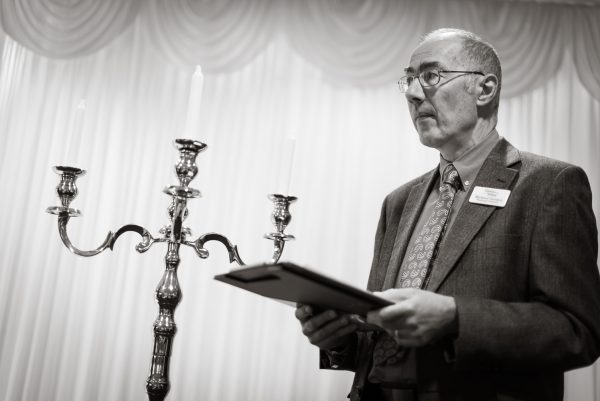
by Michael | Jan 20, 2020 | Blog
You’re getting married? Brilliant! Have you decided who will officiate? Will it be a priest (or equivalent), a registrar or a civil celebrant? Did you even realise that you have a choice?!
[This post is designed for English or Welsh couples, although laws are set to change in the not-too-distant future. Separate rules apply to Scotland and Ireland.]
Religion
If you are
marrying in an Anglican church, this is as simple as it gets. You will be able
to combine religious and legal in one ceremony. The same applies for Jewish and
Quaker weddings.
Otherwise,
you will have to arrange a trip to the register office and to the church before
you can be declared married.
Registrars
The registrars come at the other end of the spectrum to priests, although both services are pretty much standardised. The registrars are not permitted even to mention God or religion. What they do, however, is to pronounce the legal words. Without these being uttered and witnessed, no marriage is valid.
You need to make an appointment with the registrars and go to their office with two witnesses. Or the registrars may come to the venue of your choice (currently, there are restrictions, such as a minimum requirement of four solid walls). Be aware that this will cost you substantially more.
The registrars will offer you a minimum of choice as to the service structure. And their presentation skills can vary wildly!
Celebrants
Until the law changes, civil celebrants cannot marry people legally. They can bless them, conduct a part-religious (or even wholly-religious) service, hand-fast them, get them to sign a marriage certificate afterwards, but none of this makes the marriage legal.
So what
normally happens in these cases is that the couple marries first (at the register
office, unless the registrars come out to their venue). This can be done in a
private room or in front of guests.
When the registrars have left, the civil celebrant can stand up and publicly conduct the personalised ceremony the couple have been dreaming of. It may be religious, or partly so; it may be (partly) humorous; it may contain ritual; active participation may be invited; favourite readings or music may be chosen; it may well be unique to the couple.
At the end, the celebrant may declare the couple legally married (as long as the registrar service has been completed!).
The point is that, by using a celebrant, you have free choice as to the tone and content of your ceremony on your big day.
If you want
any further clarification on this issue, please feel free to contact me.
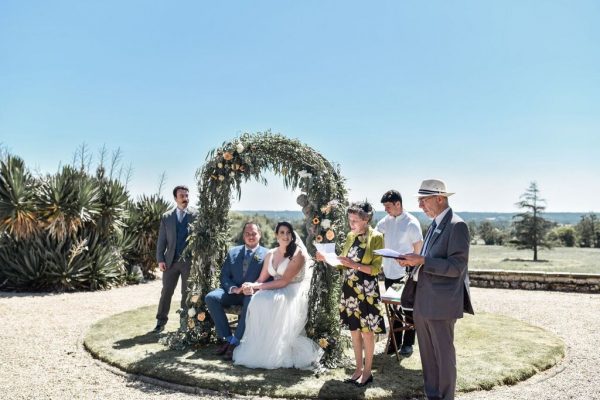
by Michael | Oct 7, 2019 | Blog
Among the questions I am regularly asked are the following:
What is a Civil Celebrant, actually?
The bottom line is that a civil celebrant will personalise your ceremony for you. They should be able to advise you, but will also listen to you. Their goal is to understand your vision of the big day, and tailor a ceremony that reflects your personalities and beliefs and is everything you ever dreamt it would be.
What sort of Ceremonies does a
celebrant offer?
Some specialise in one or two areas only (eg high-end weddings or funerals). However, most will offer weddings, vow renewals, namings, handfastings, funerals, and so on. These may be religious, part-religious or secular, depending on the celebrant.
Why not have a full religious
ceremony?
There’s nothing to stop you having a full religious ceremony led by a celebrant. You’re more likely to go to your own Church (or whatever) for this, though. Moreover, many celebrants are not ordained; however, they may still be willing and able to perform such a ceremony.
Are civil celebrant ceremonies legal?
This is now
under discussion at Parliament. But, at least, for the next few years celebrant
ceremonies in England & Wales have no legal validity. That applies to weddings
or funerals, as these must be legally registered.
There is nothing to stop you getting legally married at a Register Office (by appointment) with two witnesses. You can then proceed – that day or the next – to the venue of your choosing to have the celebrant-led ceremony of your choice. Which, to all intents and purposes, will be your actual wedding.
What makes a celebrant-led ceremony
special?
The celebrant crafts the ceremony together with you. Usually, you will be sent drafts to comment on, and a good celebrant will ensure that you have approved every word of the ceremony by the time the big day arrives.
You may be
encouraged to incorporate rituals (such as handfasting, Unity Candle, stamping
a glass underfoot, etc.) and personal items (how you met, what attracts you to
each other etc.).
You can
include the readings you like (whether spiritual, religious, humorous, or
whatever) and have the people you want participating in the ceremony.
You might write
and recite your vows (possibly, with the celebrant’s assistance).
You work as
a team towards your special, unique ceremony.
How do you choose a really good
celebrant and how much do they charge?
If you don’t have first-hand experience or a reliable recommendation, have a look at the celebrant’s website.
Look at testimonials.
See what the celebrant says and how they say it.
Do you think you will like them? Do you feel you can trust them?
Are they humble enough to listen to you? Will they be competent on the day?
If you think
they are promising, speak to them, preferably face-to-face, and ask the burning
questions you may have. (You can meet a couple of celebrants, and see how they
match up.)
Once you
have decided you want that particular celebrant to share the limelight with
you, only then worry about their cost.
You might find one who undercuts the others considerably, but do you want to take the risk of being disappointed on the day? Nonetheless, it should be pointed out that being expensive does not guarantee quality.
If the celebrant you do want to work with is a little too expensive, can you save some money somewhere else? Or can you pay in instalments?
Of course, you may have other questions; I’m waiting to answer them!





